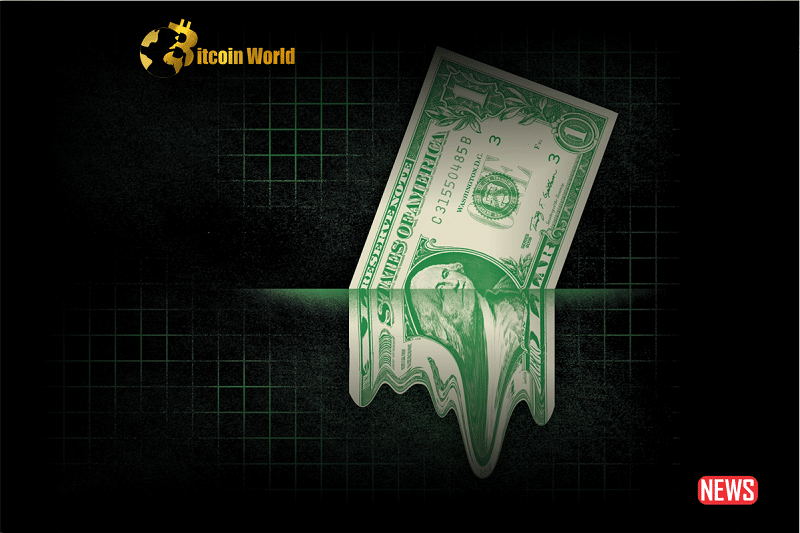Is the reign of the US dollar as the world’s undisputed reserve currency starting to wane? Venezuelan President Nicolás Maduro certainly thinks so. He recently sparked a global conversation by highlighting what he sees as an “unstoppable decline” in the dollar’s dominance. Maduro points a finger at the impact of US sanctions, suggesting they’re pushing nations to seek alternatives. But is this just rhetoric, or is there a real global shift underway? Let’s dive into the fascinating world of de-dollarization and explore what’s driving this potential transformation.
Why the Dollar’s Dominance is Being Questioned
Maduro isn’t alone in observing a potential shift. The increasing use of sanctions by the US has inadvertently encouraged other countries to explore ways to bypass the dollar-centric financial system. Think of it like this: if you’re constantly worried about being locked out of a particular system, you’ll naturally look for other options. Here’s a breakdown of the key factors at play:
- Sanctions as a Catalyst: US sanctions, while intended to achieve specific political goals, have pushed nations to find ways to conduct trade and financial transactions outside the dollar’s reach.
- The Quest for Financial Independence: Countries are increasingly seeking greater control over their economies and are wary of being overly reliant on a single currency.
- The Rise of Multipolarity: The global landscape is becoming less centered around a single superpower, fostering a desire for a more balanced financial system.
Africa: A Hotbed for De-Dollarization?
Maduro specifically highlights African nations as being at the forefront of this de-dollarization movement. But why Africa? Several factors contribute to this trend:
- Historical Context: Many African nations have experienced economic challenges tied to reliance on external financial systems.
- Trade Diversification: African countries are increasingly trading with nations outside the traditional Western sphere, making alternative currencies more appealing.
- Innovation and Necessity: Necessity is the mother of invention. Faced with economic hurdles, African nations are exploring innovative financial solutions.
Zimbabwe’s Bold Move: A Gold-Backed Digital Currency
Speaking of innovation, Zimbabwe offers a compelling example. Imagine a digital currency backed by a tangible asset like gold – that’s precisely what Zimbabwe has introduced. What are the potential benefits of such a system?
- Stability and Trust: Being backed by gold can provide a sense of stability and trust, especially in economies that have experienced hyperinflation.
- Facilitating Transactions: Digital currencies can streamline payments and make everyday transactions easier.
- Reducing Dollar Dependence: By offering an alternative medium of exchange, Zimbabwe aims to lessen its reliance on the US dollar.
While still in its early stages, Zimbabwe’s experiment is being watched closely by other nations considering similar moves.
BRICS: Building a Financial Fortress Outside the Dollar?
Another significant player in the de-dollarization narrative is the BRICS economic alliance (Brazil, Russia, India, China, and South Africa). This powerful bloc is actively working towards greater financial independence. How are they doing this?
- The New Development Bank (NDB): Established by BRICS, the NDB provides funding for infrastructure and development projects in member nations, offering an alternative to traditional Western-dominated institutions like the World Bank.
- Exploring a Common Currency: The possibility of a BRICS-backed global currency is a recurring topic of discussion. This would be a significant step towards reducing reliance on the US dollar for international trade among member nations.

Potential Benefits of De-Dollarization
So, what are the potential upsides of a world where the US dollar isn’t the only king?
- Reduced Vulnerability to US Monetary Policy: Nations would have greater control over their economies and be less susceptible to fluctuations in US interest rates and monetary policy.
- Increased Trade Opportunities: Bilateral trade agreements using alternative currencies could become more common, fostering new economic partnerships.
- Greater Financial Stability (Potentially): A more diversified global financial system could be more resilient to shocks and crises affecting a single currency.
Challenges on the Road to De-Dollarization
Of course, shifting away from the dollar won’t be easy. There are significant hurdles to overcome:
- Entrenched Systems: The US dollar’s dominance is deeply ingrained in global trade and finance. Changing this requires significant coordination and effort.
- Liquidity and Stability Concerns: Establishing alternative currencies with the same level of liquidity and stability as the dollar is a major challenge.
- Geopolitical Factors: The US is likely to resist any significant challenge to the dollar’s status, and geopolitical tensions could arise.
The Future of Global Finance: A More Diverse Landscape?
While it’s unlikely the US dollar will disappear from the global stage anytime soon, the momentum towards exploring alternatives is undeniable. Maduro’s observations, while perhaps politically charged, reflect a broader trend. The rise of initiatives like Zimbabwe’s gold-backed digital currency and the ambitions of the BRICS nations signal a potential shift towards a more multipolar and multicentric financial world. This transition won’t happen overnight, but the seeds of change are being sown, potentially leading to a more balanced and diverse global financial system in the years to come.
What does this mean for the average person? In the long term, a more diversified financial system could lead to greater economic stability and more opportunities for international trade and investment. However, the transition period may bring some uncertainty and volatility. Keeping a close eye on these developments is crucial for understanding the evolving landscape of global finance.
Disclaimer: The information provided is not trading advice, Bitcoinworld.co.in holds no liability for any investments made based on the information provided on this page. We strongly recommend independent research and/or consultation with a qualified professional before making any investment decisions.




